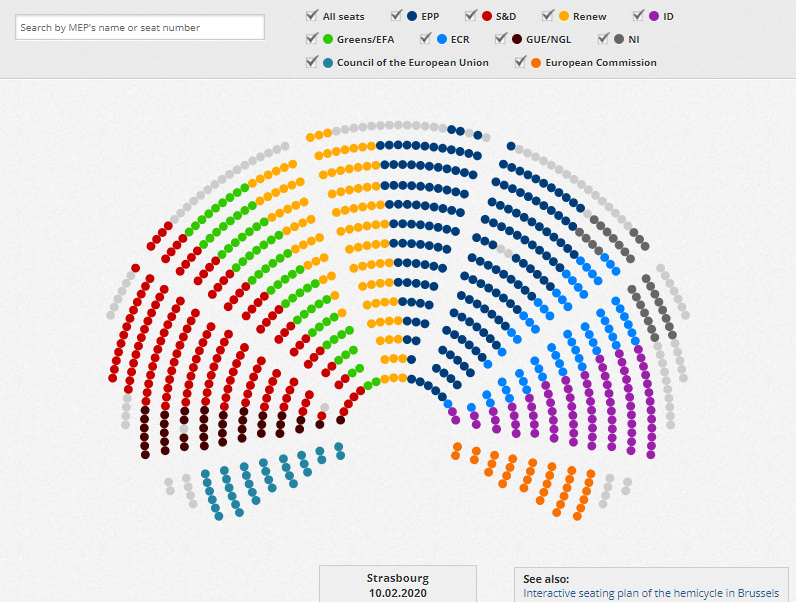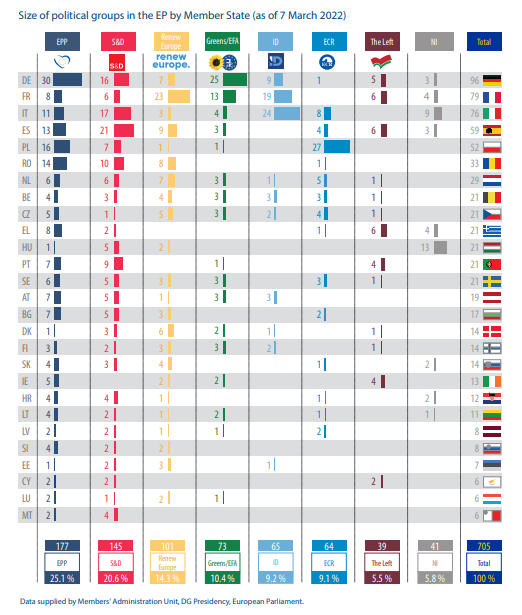The work of the European Parliament
2. EP political groups
MEPs are elected on the basis of national electoral systems, respecting some common principles enshrined in European law, in particular proportional representation.
Once elected, they are not grouped on a national basis but by political affiliation. The current EP is divided into 7 political groups that sit together in the parliamentary hemicycle.
Watch the video introducing the current political groups:
See also the interactive map of the hemicycle of in Strasbourg and Brussels.

According to parliamentary regulations, a political group can be formed at any time during the term of office; 25 MEPs from 7 different countries are needed to form a group.
Currently, the political groups present in the EP are:
Group of the European People's Party (Christian Democrats) (EPP)
Group of the Progressive Alliance of Socialists and Democrats in the European Parliament (S&D)
Renew Europe Group (RENEW)
Group of the Greens/ European Free Alliance (GREENS/ EFA)
Identity and Democracy Group (ID)
European Conservatives and Reformists Group (ECR),
The Left Group in the European Parliament (GUE/ NGL)
MEPs who do not belong to any political party are known as 'non-attached members'.

Source: European Parliament, 2022
To find out more, read the briefing from the European Parliament Research Service: https://www.europarl.europa.eu/RegData/etudes/BRIE/2022/698880/EPRS_BRI(2022)698880_EN.pdf
The European political groups are multinational and multilingual but also multicultural if we consider the variety of political experiences among MEPs. Making a synthesis of such diversity is not easy but, if you look at the voting choices of the MEPs, you can see how belonging to a political group is the most relevant and by far more determining a factor than national membership.
Furthermore, in European dynamics it is not only national and political affiliation that counts, but also institutional (e.g. Parliament vs. Council). It is not uncommon for Parliament to express support for specific causes through joint declarations by various cross-cutting political groups from both a national and ideological point of view.